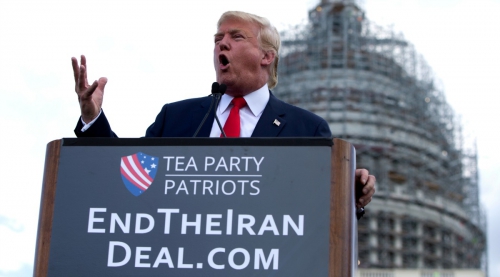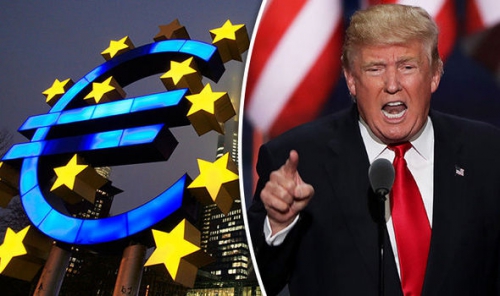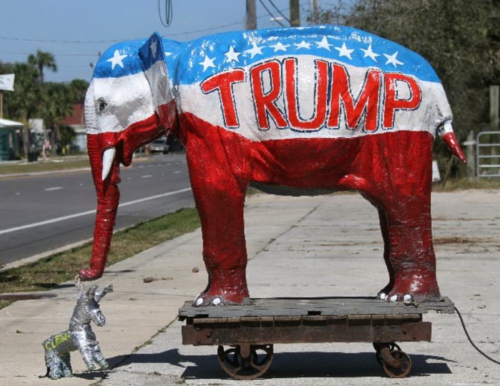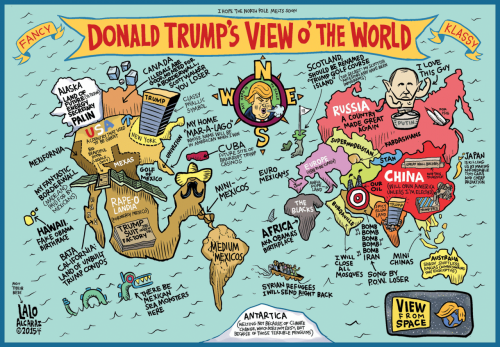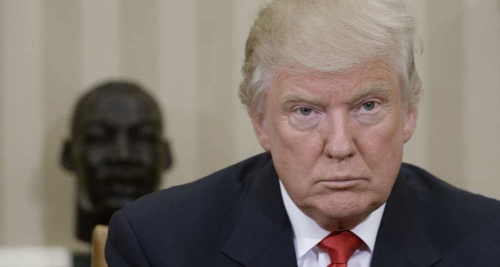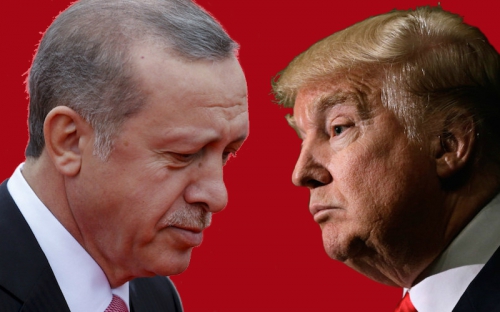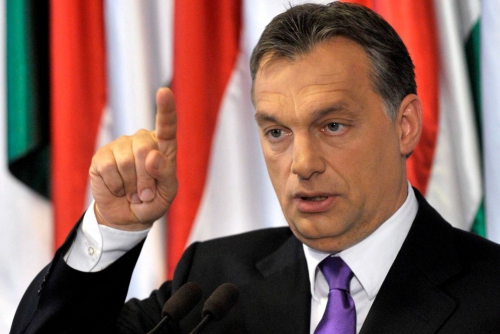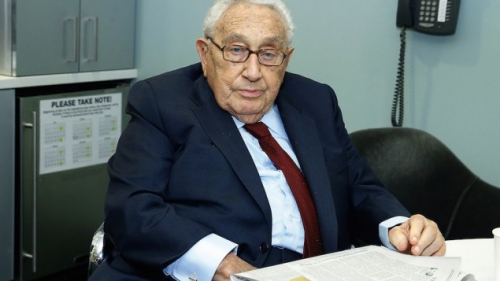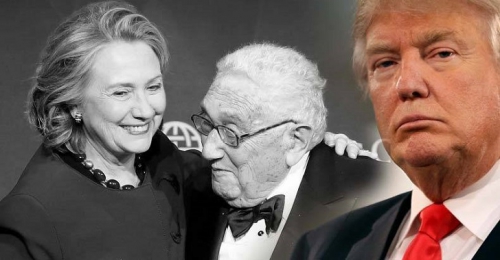On Friday the 13th of October, 2017, President Trump gave a speech on the Joint Comprehensive Plan of Action (JCPOA) that Persians will forever remember as “the Arabian Gulf” speech. Seven months earlier, Secretary of State Rex Tillerson announced that the United States was initiating a “comprehensive review” of its Iran policy, including the JCPOA colloquially known as “the Iran nuclear deal.” About a month after Tillerson’s April 19th statement, the Secretary of State accompanied President Trump on a state visit to Saudi Arabia where the President addressed tens of Arab nations in a speech that identified Iran as the leading state sponsor of terrorism. This, despite the fact that Iran has never carried out an act of terrorism on American soil whereas, during his campaign, Donald Trump himself rightly identified Saudi Arabia as responsible for helping to plan and organize the 9/11 attacks. A comparison of the remarks of candidate Trump regarding Saudi Arabia to the policies of President Trump on Saudi Arabia is one of the clearest examples of Donald Trump’s hypocrisy and charlatanry. Another is his not having included the Saudis in his “Muslim ban” that does prevent Iranians from immigrating to the United States. The candidate who lambasted Hillary Clinton for taking money from Saudi Arabia went on to literally do a war dance with the Saudis, and to form a coalition with them against Iran. Several weeks after this trip to Saudi Arabia, Secretary of State Tillerson referred to the Persian Gulf as “the Arabian Gulf”.
During his Friday the 13th speech decertifying the JCPOA and laying out a strategy for regime change in Iran, President Trump echoed his Secretary of State when nearly six minutes into the twenty minute speech, he said that Iran “harasses American ships and threatens freedom of navigation in the Arabian Gulf and Red Sea.” Trump’s speech presented the outcome of the “comprehensive review” of Iran policy announced by Tillerson back in April. In summary, the new Iran policy includes renegotiating the nuclear deal to remove the time limits on the heavy restrictions of Iran’s nuclear energy program, to target Iran’s ballistic missile development, especially its efforts to acquire ICBMs, as well as measures not directly related to the nuclear program but targeting the regime, such as the imposition of crippling sanctions on the Islamic Revolutionary Guard Corps (IRGC), which “has hijacked large portions of Iran’s economy”, and finally, to support “regional allies”, i.e. Sunni Arab states, in confronting the Iranian military and paramilitary presence in Shiite-majority countries like Iraq, Syria, Lebanon, and Yemen.
For someone who has long been involved in the Iranian opposition to the Islamic Republic, and who was outraged by Obama Administration policies toward that regime, there were certainly elements of Trump’s speech that, on the face of it, seemed positive. These included his description of the regime as a tyranny that does not reflect the character and will of “a proud people”, a regime that has “raided the wealth of one of the world’s oldest and most vibrant nations.” Trump rightly condemned the Islamic Republic for brutally crushing the peaceful mass demonstrations of the summer and fall of 2009. He rightly chastised Obama for a nuclear deal that “threw Iran’s dictatorship a political and economic lifeline, providing urgently needed relief from the intense domestic pressure…” Indeed, Obama was penning secret letters to the Supreme Leader at the same time that the latter was ordering the murder and torture of young unarmed protestors whose chants included “Obama, Obama, either with us (the Iranian people) or with them (the Islamic regime)!” Trump’s evocative description of Obama’s perverse physical transfer of “huge piles” of cash to the Mullahs by airplane was particularly compelling.
There is, however, good reason to question the sincerity of the President when he claims that in his proposed policy of confronting the Islamic Republic, the United States government stands “in total solidarity with the Iranian regime’s longest suffering victims… The Iranian people [who] long to… reclaim their country’s proud history, its culture, its civilization…” The bare minimum of showing respect for the people of Iran’s millennial Persian civilizational heritage is to refer to the Persian Gulf by its proper name, which dates from the time of classical Greek geographers and has since been officially recognized by all major international organizations. Wanting to get under the skin of the Mullahs and threaten them is no excuse, since from the moment that they seized power in 1979, they have been Arabizers that tried to suppress Iran’s Persian identity. At one point they even wanted to bulldoze Persepolis and change Iran’s language to Arabic. President Trump’s use of the bogus term “Arabian Gulf” was bound to terribly offend the Persian people themselves. It reveals that the rest of his rhetoric about Persians being oppressed and victimized by the Islamic Republic was primarily for domestic consumption, preparing Americans for the “liberation” of yet another country.
Trump’s deployment of the phrase “Arabian Gulf” was no more accidental than Secretary of State Tillerson’s seven months earlier. It signals the true end game of the new Iran policy: the transformation of the Persian Gulf into the Arabian Gulf through targeting Iran’s nationwide Persian cultural identity by engineering ethnic separatism, reducing Iran to an impoverished rump state of ‘Persia’ surrounded by resource-rich “microstates” exploitatively controlled by Saudi Arabia and the rootless global capitalists whose cancerous Deep State has destroyed America’s moral compass. That Trump and Tillerson intend to pursue a war with this outcome was made clear in statements that Walid Phares volunteered to Fox News on October 13th during a preview and preliminary analysis of the President’s “Arabian Gulf” speech.
When asked about the nature of the new Iran policy that the President was about to announce, Phares explained, “The Pasdaran, the Iranian Revolutionary Guard, will be under the focus of [i.e. in the crosshairs of] our allies, and speaking of our allies, remember the President went to Riyadh. He met with 50 Arab and Muslim leaders. This is way different from what was the situation in the ‘90s. He has a much larger coalition. Even if the Europeans are going to be criticizing his position, he has a much larger bloc in the region to work with.” The Fox News anchor fails to ask Phares why he is jumping all the way back to the 1990s rather than drawing a contrast with Obama’s Iran policy. What does a “larger coalition” of Arab nations have to do with “the situation in the ‘90s”?

Phares is referring to the 1991 Persian Gulf War and the coalition of Arab nations that George H. W. Bush formed to demolish Iraq. Saudi Arabia was the backbone of this coalition, as it will be the linchpin of the “much larger bloc” of Sunni Arab states that Trump will lead in a war that shatters and devastates Iran. On Phares’ revealing analogy, the Revolutionary Guard’s forward positions in the Shiite crescent are akin to the Iraqi occupation of Kuwait. The difference is that the entirely predictable reaction of the Islamic Republic of Iran to being bombarded by Saudi-based missiles and air force jets is going to be a massive retaliation against Saudi Arabia and other Sunni-Arab sheikhdoms in the Persian Gulf, which will require American and allied Arab forces to put boots on the ground in Iran (at least in support for ethnic separatists and other terrorists) whereas Bush Senior’s coalition never marched to Baghdad. It is also predictable that, if attacked, the Islamic Republic will use Hezbollah to unleash asymmetrical warfare inside the United States on a scale that makes 9/11 look like a firecracker. Certainly, at that point, Congress will be intimidated into authorizing a full-scale American occupation of Iran.
I met Walid Phares and discussed Iran policy with him. Later on, I wrote him a very substantive letter warning the Trump Administration not to go down the Pro-Saudi path that it has since chosen to pursue with respect to regime change in Iran. This was the secret plan that Hillary Clinton had for dividing and conquering Iran, and the main reason that I and so many others within the Persian Renaissance movement supported Donald Trump was to make sure that it never actually became US foreign policy. The one thing that could turn the largely pro-American Persian people against the United States is American support for a Saudi-led Sunni Arab war against Iran. I was introduced to Walid Phares by Michael Bagley, the former intelligence director of the infamous Blackwater militia and founder of the Jellyfish intelligence agency.
During the summer of 2016, a certain individual contacted me. I’ll call him X. He praised Prometheus and Atlas to high heaven and said some things that I am not going to disclose because you will find them as hard to believe as I did before I was read into certain esoteric projects. Initially, I dismissed X as a nutcase and would rarely respond to him. Then he offered to concretely assist my efforts on the Persian front by putting me in touch with Michael Bagley, the President of Jellyfish, which he described as a private security and intelligence agency working with the Trump Team to prepare a new United States policy regarding Iran and the Islamic world. I was told that General Michael Flynn worked for Jellyfish, clandestinely of course, and I appreciated Flynn’s position on the Islamic threat. I figured that engaging with Michael Bagley would be an easy way to find out whether X was a crank or whether the other things he was telling me might be true.
Whereas some of what I later saw and heard while working with X and his other associates (there was a Y and Z) might have been smoke and mirrors, deliberately tailored to my personality profile and edgy techno-scientific interests, Michael at least turned out to be totally legit. His clients mostly consist of the chief executives of Fortune 500 companies, but I surmised that he had a special rapport with X and that the group X represents had some role in forming Jellyfish and mainly used it for their purposes – with the corporate consulting acting as a cash cow. I met with Michael months before the 2016 Presidential Election, again after Trump’s victory (which I was not surprised to see), as well as in the early days of the new administration. He would see President Trump on a regular basis, and he introduced me to others with even more access, including Walid Phares, who Michael described as the shadow Secretary of State. He said that Rex Tillerson was just supposed to be a front man, and that when I spoke to Walid I should assume that I am essentially speaking directly to President Trump. What really interested me was a proposal by Michael that I act as a liaison who provides media content produced by the Persian Renaissance Foundation to Jellyfish for broadcast into the Islamic Republic of Iran from a facility in Croatia.

Why Croatia? As X and I discussed, Croatia is a part of Iranian civilization. During Tito’s rule, which imposed a Slavic identity on all of Yugoslavia, scholars were actually prosecuted, imprisoned, and even tortured for researching and writing about the Iranian origin of the Croatian people. Specifically, they are part of the Scythian branch of Iranians – cousins of the Persians who rode deep into Europe. Widely known in Europe as “Alans”, they brought the Persian culture of chivalry and the Arthurian mythos to the West. On top of their Scythian ethnic roots, they were also a colonial territory of the Persian Empire under Darius – whose naval power, at its zenith, reached the Adriatic Sea. At least, that is how X pitched it to me. For all I know, Michael has never heard of the Scythians and the Balkans facility had absolutely nothing to do with Croatia’s heritage.
You see Michael’s interest in me was not limited to what we called “the Iran project.” At a meeting we had in Washington just before the Trump Administration came to power, Michael proposed to “take Richard [Spencer] out” and install me as the leader of the Alt-Right. By then, I had met Richard during NPI 2016 and, as someone whose fatal flaw is always wanting to see the best in people, I counter-proposed that Spencer was a reasonable guy who would accept direction from above if it meant that, through a figurehead other than himself, he could have access to the President. Steve Bannon was known to be a reader of Arktos books and Michael’s plan was to send me into the White House to cultivate a relationship with Bannon, and through him, to influence President Trump. My main reason for wanting to have such influence was to help determine Iran policy. Michael got at least one of my letters on this subject into the hands of the President. In it, on behalf of the Persian Renaissance, I explicitly warned Trump not to pursue a pro-Saudi or generally pro-Arab strategy for regime change in Iran. In retrospect, I suppose that through that letter the President and his policymakers also acquired some fairly substantive intelligence on our outlook, intentions, and capabilities.
Together with X and Michael, a plan was hammered out to secure my position as the leader of the Alt-Right by creating a corporate structure that unified the major institutions of the movement, in both North America and Europe, bringing Richard’s National Policy Institute think tank together with Daniel Friberg’s European Arktos publishing house, and the Red Ice Radio and Television network founded by Henrik Palmgren. A major investment would allow me to become a majority shareholder both in this new Alt-Right Corporation, and in its would-be subsidiary, Arktos Media, replacing Daniel Friberg as its CEO. When I expressed concern to Michael about what this plan would mean for my academic career, he replied, “What do you need an academic job for? You’ve been there and done that. Now it’s time for us to put some money in your pocket.” When a man who routinely does work on contract for Fortune 500 executives says something like that, it really does amount to an assurance that one will not be thrown under the bus (in the way that I now have been).
The funds for this investment into the Alt-Right Corporation, through yours truly, were going to be secured through a multi-billion dollar black budget for a classified project to be implemented by the Trump Administration. That project involved the construction of a vast constellation of “micro cities” in North Africa and Western Anatolia to contain the flow of migrants from the Islamic world into Europe, and to act as resettlement areas for illegal immigrants expelled from European countries. I was fully aware of the catastrophic damage that these migrants were doing to the social fabric of European countries: increasingly frequent acts of terror, molestation of women and children, and the spread of no-go zones where sharia law is enforced in European cities. So I can honestly say that I would have had no problem sleeping at night knowing that I was profiting from a project that would relocate these mostly military-aged Muslim men to places where they cannot volunteer to act as a fifth column for the Islamic State. Especially since I had been forced to helplessly witness ISIS destruction of the irreplaceable Iranian heritage in regions of northern Iraq and Syria that were once cultural centers of the Persian Empire. Not to mention the rape, enslavement, and genocide of Yazidi Kurds, crypto-Mithraists who are the purest remnant of ancient Iranian ethnicity.
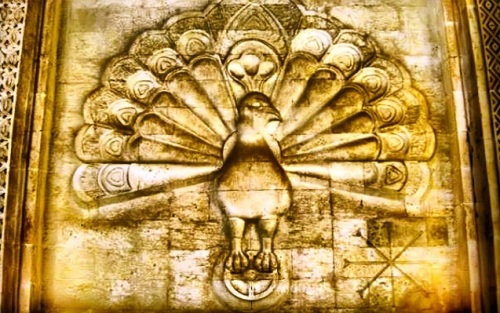
As I have explained in previous pieces, the funding for a capital investment that would have established me as the majority shareholder of the Alt-Right Corporation never materialized. Now you can see why. Neo-Cons and Neo-Liberals at high levels conspired to ensure that President Trump never authorized the construction of what they considered glorified concentration camps, even though I was told by both Michael and X that the black budget funding for the “micro cities” had already been allocated.
Let me tell you what X did when I started writing him letters warning that I was losing control of my partners and influence over the direction of the corporation. I wrote that I would be forced to take drastic measures if he and Michael allowed me to be humiliated in front of them on account of hollow promises and repeated, false assurances that the obstacles had been cleared and the capital would finally reach us. This was Spring of 2017, before the current troubles in Venezuela. X sent me a nearly $1 billion itemized oil contract, to pass on to a top-notch petroleum engineer at one of the world’s largest oil companies and ask if they were willing to take it on. X confessed that his “Promethean pirates” were planning to overthrow the socialist government of Venezuela and that they needed to get into the oil industry there before doing so. The engineer came back and said his company was not capable of the project.
I am sorry to have to disclose these facts. However, in the wake of The New York Times libelous publication of the video footage of me that Patrik Hermansson (aka. ‘Erik Hellberg’) surreptitiously obtained and deceptively edited, I contacted both X and Michael and gave them a final opportunity to do right by me. After all, I would never have been in that pub with ‘Hellberg’ as an Alt-Right leader if Michael had not promised to fund our proposed corporatization of the movement. What is worse is that Mr. Hermansson was sent my way by people closely associated with X, who was a founder of The London Forum. X was the person who contacted Jez Turner and Stead Steadman to set up that talk for me, and also secured an invitation for my dear friend Shahin Nezhad, leader of the Persian Renaissance Foundation, to give a speech as well. This is significant because ‘Erik Hellberg’ first met and set his sights on me during that event.
There was something very peculiar about X’s involvement with bringing me to The London Forum. He did not attend the talk himself, complaining about the Antifa demonstrators who surrounded the venue (there were even police helicopters circling the high-rise building during my speech). However, at one point X was actually in the lobby of the conference hotel and he sent up a certain Potkin Azarmehr. This troubled Shahin and I, as well as our close associate Aria Salehi (a member of the Board of Trustees of the Persian Renaissance), because we had encountered Potkin a day or two earlier at a Persian Renaissance event in London. He was not there as a sympathetic audience member but as a person carrying out surveillance, sitting alone in the back of the room with a disapproving look on his face. Potkin did the same thing at The London Forum event where Shahin and I spoke. He came in, checked things out, reviewed the book stand, and then left grumbling about how we were a bunch of “Mosleyite Fascists.”
What was a leftist like Potkin doing at either event? Why is he an associate of X if the latter is a founder of The London Forum and someone claiming to help facilitate the aims of the Persian Renaissance – including by getting me into business with the Trump Administration through Michael and the Alt-Right? Potkin is rumored to be an asset of Scotland Yard, and to have connections to the Mojaheddin-e-Khalq (MKO, aka. MEK, or National Council of Resistance of Iran), Marxist-Islamists who are even worse than the Islamic Republic and who lost any shred of legitimacy they may have once had when they defected to Iraq with some Iranian tank divisions and sided with Saddam during the Iran-Iraq War. Late in the course of my work with X, another associate of his who had also been falsely promised funding, let me know that X had at one point worked for MI6.
What were Michael’s true intentions when he suggested that I enter the leadership of the Alt-Right? Well, I can report that not only did our “Iran project” go nowhere, it has since come to my attention that even though X kept encouraging the Pan-Iranist discourse of the Persian Renaissance in the private meetings that I had with him, Michael was being told by people in “the deep state” that our Pan-Iranism was at odds with the kind of regime change that they wanted to see in Iran. Apparently, so was our tough stance against Islam and our emphasis on Pre-Islamic Persian values. In fact, Donald Trump eventually hired an American convert to Islam to manage his new Iran policy! After this, those of us in the Iranian opposition participating in private White House discussions regarding regime change had to fill out a form stating that we are Muslim, even though millions of young people in Iran today – and certainly all of the most anti-regime people in the country – have left Islam, usually for some form of Neo-Zoroastrianism. This is reflected in the part of Trump’s Friday the 13th speech, where he says “We hope that our actions today will help bring about a future… where young children, American and Iranian, Muslim, Christian, and Jewish, can grow up in a world free from violence, hatred, and terror…” On account of the Persian Renaissance movement, the Abrahamic religions, including and especially Islam, are on their way out in Iran. Why would Trump not acknowledge the millions of Neo-Zoroastrians who are the most anti-regime and most pro-Western elements in contemporary Iranian society? Whose interests does this serve?
Why was I continually encouraged to present policies to the shadow Secretary of State, in person, and to the President of the United States, in writing, which Michael had already told X were unacceptable? How could this have been allowed to go on for so long that, on August 11th, the Persian Renaissance formed the Iranian United Front (Jebheyé Irângarâyân) unifying the most established patriotic political parties opposed to the Islamic Republic, including the Pan-Iranist Party, under the false assumption that the Trump Administration would give us a serious hearing? Perhaps because certain agencies wanted us to put all of our eggs in one basket, so that they could break them all at once.
As the youngest and most intellectual member of the new coalition, the one who named it Jebheyé Irângarâyân, and the person whose speech introduced it to the English-speaking world, tarring me in the pages of The New York Times and countless other media outlets that have echoed its libelous coverage of the doctored Antifa video, could potentially be used to destroy the whole coalition. On September 28th, the mainstream Persian media outlet Radio Zamaneh ran a hit piece on me even more libelous than that of The New York Times, titled “In America, an intellectual leader of Iranian Fascism has been dismissed from teaching.” The Persian Renaissance Foundation is referred to as an imperialistic “fascist” organization, and its fate is explicitly and irrevocably tied to mine. Hopefully, you are starting to get the picture.
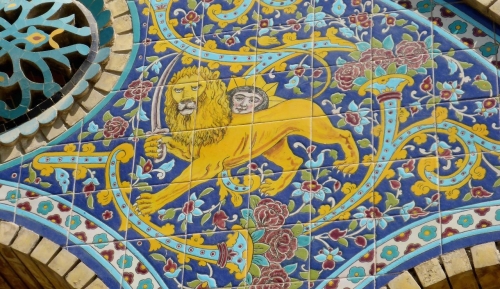
What was done to me on September 19th was the outcome of a long-term plan, and it is not just about the destruction of my academic career. Administrators at NJIT are simply useful idiots. This is about the reorientation of the trajectory of geopolitics in the Middle East, the Caucasus, and Central Asia. It is about aborting a Renaissance of the Persian Empire, which could bring progress and prosperity back to the dark heart of what is now ‘the Islamic world.’ I have been the most passionately outspoken and philosophically sophisticated advocate of that Renaissance who also has deep ties to the United States of America, the country in which I was born and raised.
In fact, like Donald Trump, I was born in Queens and spent most of my life in Manhattan. Dad actually used to frequent the same neighborhood butcher as Donald’s father. My paternal ancestors include the Qajar monarchs, one of the longest reigning dynasties in Iran’s 3,000 year history, and my grandfather, Reza Qajar Jorjani, was a renowned patriotic public intellectual who helped to found the University of Tabriz – one of Reza Shah Pahlavi’s key instruments to guard against the secession of Azerbaijan and to restore its Persian cultural character after centuries of backward Turkicisation. When the Shah sent him from Tehran to Tabriz, after years in European cities such as Montpellier and Paris (with his best friend, Sadegh Hedayat), my grandfather’s orders were to wage a culture war to salvage and reinforce the Persian heritage of Tabriz. His wife, my recently deceased grandmother, Leila Dowlatshahi, hails from the family who were the regional governors of the Azerbaijan province of Persia in the Qajar period, including the northern part of Azerbaijan in the Caucasus, seized by the Russian Tsars in the mid-1800s and occupied by the Soviet Union until 1991. Her aunt, Esmat Dowlatshahi, became Reza Shah the Great’s wife, integrating our family into the Pahlavi Dynasty. God bless his soul, Mohammad Reza Shah Pahlavi, the “King of Kings and Light of the Aryans” (Shahanshah Aryamehr) whose “White Revolution” (1963–1978) endeavored to revive Persian Imperial glory, was my grandma’s cousin.
So the coming Persian War is particularly personal for me. I call it the Persian War because it is specifically a war being orchestrated against the Persian civilizational identity of Iran. As I explain in the speech where I introduced our nationalist opposition coalition to the English-speaking world, the conflation of “Iran” and “Persia” has in recent years been used to the opposite effect that this equivalence had in the West for most of history. Iran is shorthand for Eranshahr (Ancient Persian, Aryana Khashatra) or “Aryan Imperium”, which is how all Iranians, including the dominant Persians, always referred to the “Persian Empire.” Prior to 1935, Iran’s internationally recognized official name was “Persia.” Moreover, even after 1935, when Westerners referred to Iran as “Persia” they meant to suggest what has more recently been termed “Greater Iran” or the Persianate World, the Imperial sphere of influence from the borders of China to the Caucasus, from Northern India to Syria, wherein Persian (Parsi or Dari) has been a lingua franca for centuries and where people of many diverse ethnicities and religions (including huge Buddhist regions in Pre-Islamic times) were brought into a humanistic cultural, intellectual, and spiritual dialogue with one another through the Persian crown.
Today, at the behest of Arab oil sheikhs and transnational corporatists who want to loot Iran’s resources by dividing and conquering the country, “Persia” means the Persian ethnostate that would be left after fomenting Azeri, Kurdish, Ahwazi, and Balochi separatist revolts against the government of Iran. This rump state of “Persia” would have lost about 30% of Iran’s remaining territory (already a shadow of what it was only two centuries ago, let alone during the five great Persian Empires), and about 70% of vital resources such as oil and gas. Moreover, the Arab Republic of Al-Ahwaz (i.e. Iran’s Khuzestan province), Greater Azerbaijan, Greater Kurdistan, and Free Baluchistan, would have no deeply-rooted and rich civilizational heritage to serve as the backbone of nationalist resistance against exploitation of the oil and gas resources that belonged to Iran. Meanwhile, the rising tide – rather, the incipient tsunami – of patriotic sentiment based on the Persian Imperial heritage would be contained in a small and impoverished Persian ethnostate stretching from the Caspian Sea to the “Arabian Gulf”, rather than leading to the establishment of the sixth Persian Empire on the ruins of the Caliphate of Al-Qaeda (in Central Asia) and the Islamic State (in the Middle East).
I call it the coming Persian War because we, the Persians, will not go quietly into that good night. The Trump plan to divide and conquer Iran, working with Saudi Arabia and their paid agents amongst Iran’s ethnic minorities in resource-rich outer provinces, may succeed in the short term but it will eventually end in a catastrophic failure. Weimer Germany is the best analogy. Within a decade, a stoker will reignite the fire from out of those ashes. Except that we are not Germans. Through the Scythians (i.e. the Saxons) and the Alans, we lent the Germans and Goths our Faustian (i.e. Zoroastrian) genius and chivalric spirit but those northern Barbarians never understood the essence of our cosmopolitan humanism.

Al-Ahwaz and a Kurdish nation have nothing but Sunni fundamentalism and barbaric tribalism to offer the world, whereas our Persian civilizational heritage has not only held Iran together for centuries it has, repeatedly, offered all of humanity the best chance at forming a world order based on innovation, compassion, and social justice. Martin Heidegger rightly observed that “Language is the house of Being”, and there have been very few languages that became, for centuries, the lingua franca of many peoples other than those for whom it was a native language. These include Greek, Latin, Sanskrit, French, English, Russian – and Persian. We will rebuild our house of Being and defeat, at any cost, those who want to see it become a ruin inside of a ghetto.
Profiteers who are used to running ghettos want to ghettoize all of the great nations of Earth. They have been doing it to America for decades. But not to worry, after we have our own house in order we will also work to make America great again. The people of Emerson, Thoreau, and Whitman, the nation of Melville, William James, and Jackson Pollock deserves better than Donald Trump or any other chump who is ‘elected’ to be a mere tool of an unaccountable and totally corrupt Deep State apparatus, which has metastasized like a cancer throughout all of the organs of the United States government.
We, the Persians, do not hold the decent and hard-working American people responsible for: (1) CIA and CFR orchestration of the Islamist seizure of power in 1979; (2) that piece of CIA theater known as “the hostage crisis” that muddied Iran’s good name; (3) the solidification of the Islamic Republic through full US operational support for Saddam Hussein’s war of aggression from 1980–1988 at the cost of half a million Iranian lives; (4) destruction of irreplaceable Persian archeological treasures by Al-Qaeda, the Taliban, and ISIS, terrorist groups that the United States set up in our former provinces; (5) Obama’s facilitation of the mass murder and torture of the valiant youths who rose up in 2009; (6) Trump’s proposed war to create an “Arabian Gulf.”
We know that you do not really have a government “of the people, by the people, and for the people.” You are oppressed by a rogue dictatorship. Rest assured that after we liberate ourselves and secure our future, we will bring the ever-living fire of true freedom to your bountiful continent as we once brought it to Greece. Far be it from us to leave your resistance movement in the hands of the Alt-Right or comparable culturally impoverished and regressive reactionaries. We are coming to save you, America. So speaks the living spirit of Xerxes, King of Kings, Light of the Aryans...



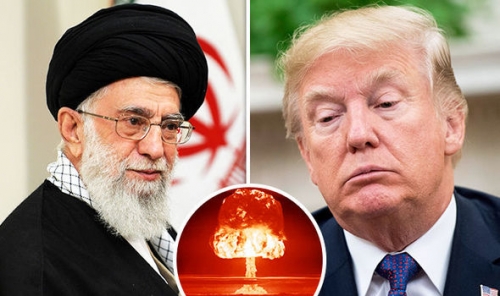
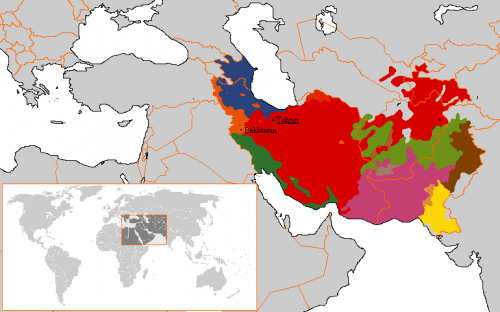

 del.icio.us
del.icio.us
 Digg
Digg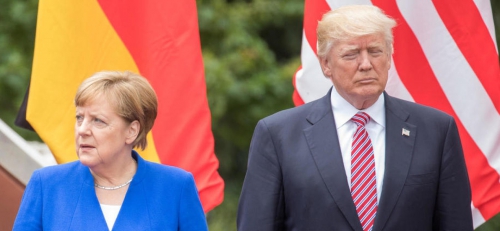





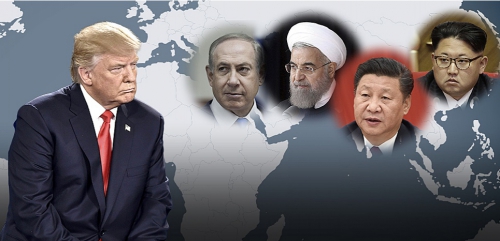
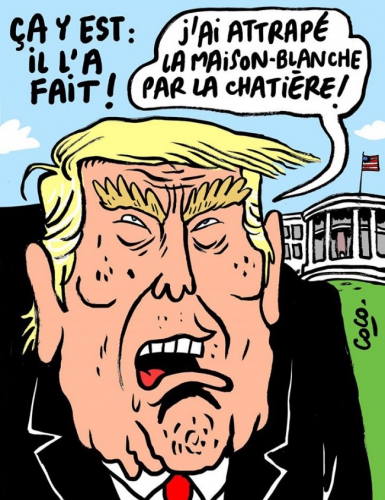

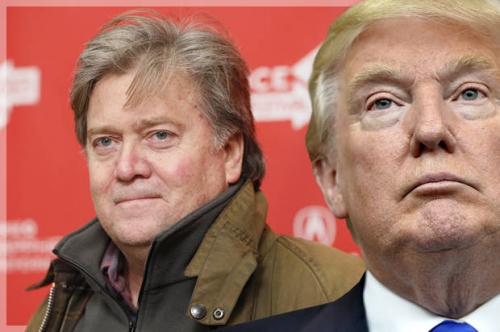
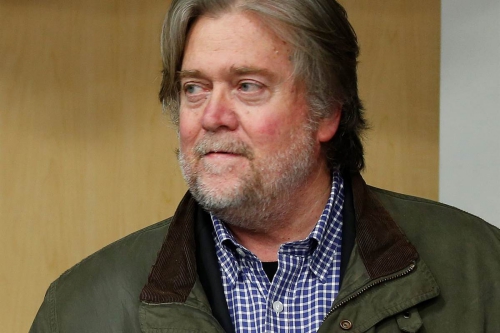
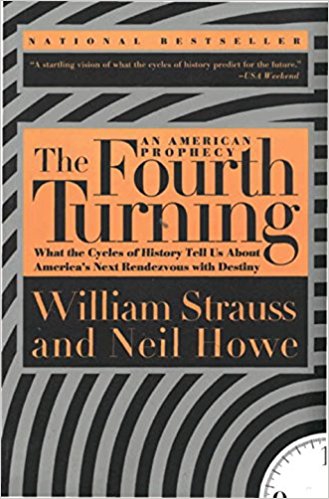 Bannon est extrêmement influencé par les travaux de deux commentateurs de la sorte que nous nommerions “crisologues” tant le concept de crise (crisologie) est au centre de toutes nos réflexions, Neil Howe et William Strauss, auteurs de An American Prophecy, en 1997. Les deux auteurs adoptent une approche de l’actuelle situation, – la grande Crise se faisant déjà sentir dès la fin du communisme avec la mise en cause radicale de la notion de Progrès, – qui se réfère aux théories cycliques de la Tradition. « [Leur] analyse rejette les promesses des historiens occidentaux modernes de développement social et économie linéaire (progrès continuel et déclin) ou chaotique (trop de complexité pour révéler n’importe quelle direction). Au lieu de cela, ils adoptent la vision d’à peu près toutes les sociétés traditionnelles : que le temps social est un temps cyclique dans lequel les événements sont significatifs seulement dans la mesure où ils sont caractérisés par ce que le philosophe Mircea Eliade nommait “reconstitution”. Dans l’espace cyclique, une fois que vous avez écarté les accidents accessoires et sans signification, ainsi que la technologie, il vous reste un nombre limité de conceptions sociales, qui tendent à se répéter selon un ordre bien fixé... »
Bannon est extrêmement influencé par les travaux de deux commentateurs de la sorte que nous nommerions “crisologues” tant le concept de crise (crisologie) est au centre de toutes nos réflexions, Neil Howe et William Strauss, auteurs de An American Prophecy, en 1997. Les deux auteurs adoptent une approche de l’actuelle situation, – la grande Crise se faisant déjà sentir dès la fin du communisme avec la mise en cause radicale de la notion de Progrès, – qui se réfère aux théories cycliques de la Tradition. « [Leur] analyse rejette les promesses des historiens occidentaux modernes de développement social et économie linéaire (progrès continuel et déclin) ou chaotique (trop de complexité pour révéler n’importe quelle direction). Au lieu de cela, ils adoptent la vision d’à peu près toutes les sociétés traditionnelles : que le temps social est un temps cyclique dans lequel les événements sont significatifs seulement dans la mesure où ils sont caractérisés par ce que le philosophe Mircea Eliade nommait “reconstitution”. Dans l’espace cyclique, une fois que vous avez écarté les accidents accessoires et sans signification, ainsi que la technologie, il vous reste un nombre limité de conceptions sociales, qui tendent à se répéter selon un ordre bien fixé... »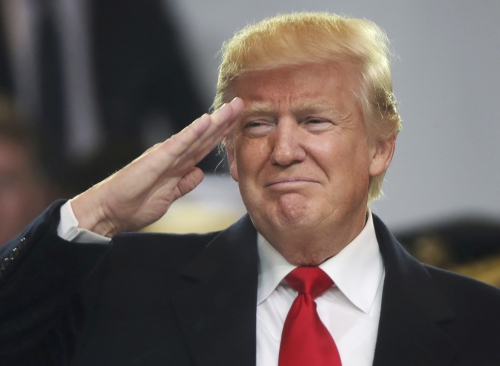
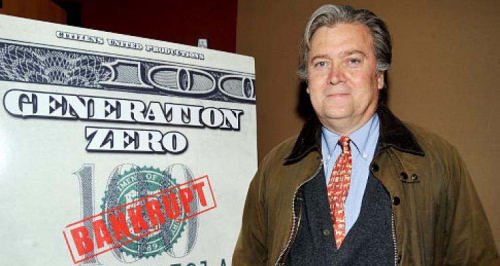

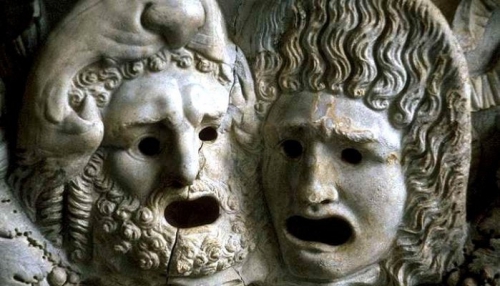


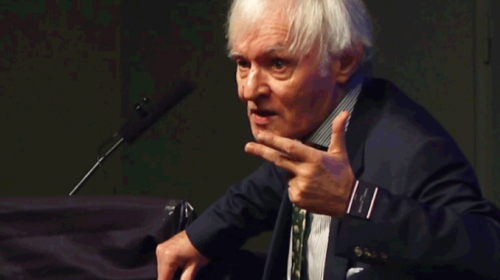
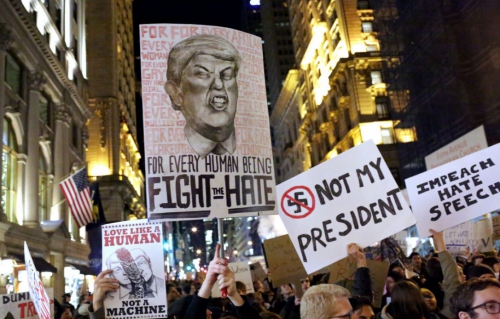
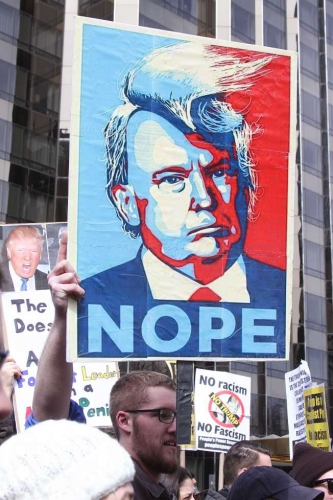 The useful idiots are all over the place, but that’s exactly what they are, mere stage extras. They are impressionable adolescents, Hollywood airheads, middle-aged women who want to “assert themselves,” perpetually incited racial minorities, and Muslim activists. Many of them can be mobilized at the drop of a pin to “march for tolerance,” however that term is interpreted by those who organize the march and by politicians, like Chuck Schumer and Nancy Pelosi, who seek to increase their influence through well-prepared displays of “righteous indignation.” Please note that Schumer’s obstructionist tactics in the Senate, blocking or delaying cabinet nominees and threatening to shoot down Trump’s Supreme Court nominee, have been applied to the accompaniment of non-stop anti-Trump protests. Only a fool or unthinking partisan would believe these events are unrelated.
The useful idiots are all over the place, but that’s exactly what they are, mere stage extras. They are impressionable adolescents, Hollywood airheads, middle-aged women who want to “assert themselves,” perpetually incited racial minorities, and Muslim activists. Many of them can be mobilized at the drop of a pin to “march for tolerance,” however that term is interpreted by those who organize the march and by politicians, like Chuck Schumer and Nancy Pelosi, who seek to increase their influence through well-prepared displays of “righteous indignation.” Please note that Schumer’s obstructionist tactics in the Senate, blocking or delaying cabinet nominees and threatening to shoot down Trump’s Supreme Court nominee, have been applied to the accompaniment of non-stop anti-Trump protests. Only a fool or unthinking partisan would believe these events are unrelated.